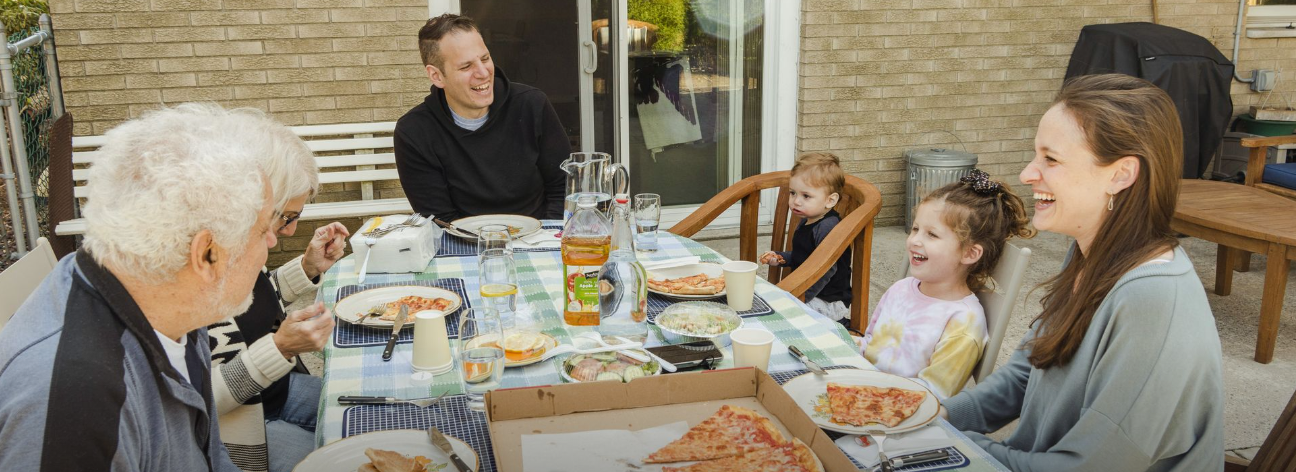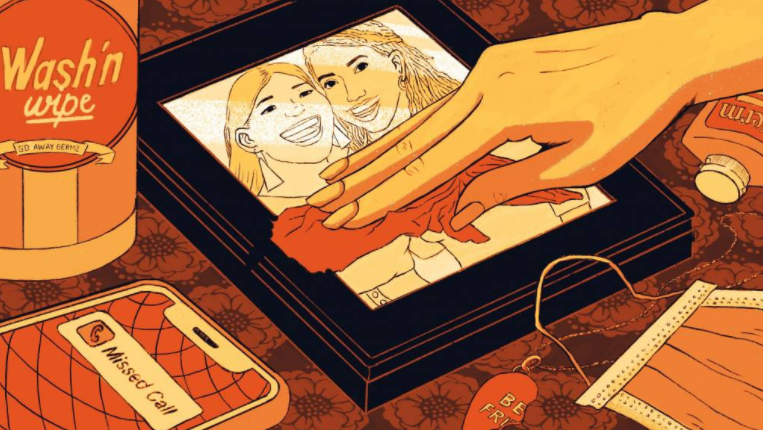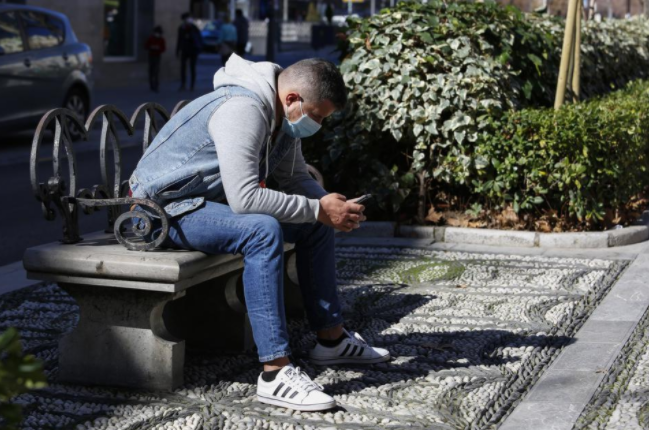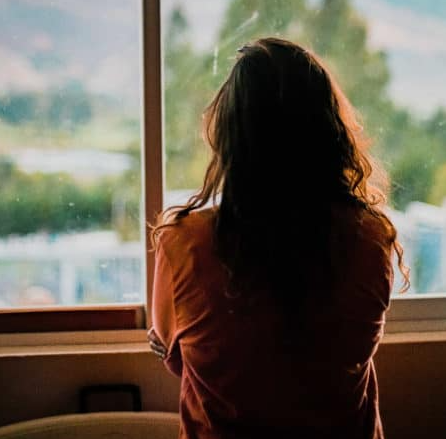"There are all the concerts we didn’t go to, the plays & dinner parties we didn’t enjoy...This is a loss of emotional nutrition. It manifests socially as loneliness," writes David Brooks in the New York Times, referencing our survey data suggesting that 61% of young adults felt "serious loneliness" during the pandemic.
Read MoreRead the latest from Making Caring Common!
You’re in the right place for our media coverage, blog posts, and event information. Our work spans a range of topics, all connected by our commitment to elevate caring and concern for the common good at school, at home, and in our communities. You can review what’s new below or use the dropdowns to sort by topic and category.
Be sure to join our email list and connect with us on Facebook, LinkedIn, and Instagram, to stay current with Making Caring Common’s news and updates. If you’re a member of the media, please visit our Media Room.
Sort by topic
- Access and Equity
- Bias
- Bridging
- Building Connection
- Bullying
- COVID
- CSN
- Caring and Empathy
- College Admission
- Consent
- K-12
- Loneliness
- Mental Health
- Misogyny and Sexual Harassment
- Moral and Ethical Development
- Parenting
- Purpose and Meaning
- Romantic Relationships
- School Culture and Climate
- School Integration
- Social-Emotional Learning
- State of Caring
- Turning the Tide
- Voter Mobilization and Civic Education
- Youth Advisory Board
Sort by category
Have you interacted more with your neighbors in the last year? During the pandemic, people have grown closer to their neighbors and sometimes relied on them during crises." There is this quality of a powerful shared experience, and many people have really helped one another,” says Rick Weissbourd in this Wall Street Journal piece by Anne Marie Chaker.
Read More"Finding simple things in common with other people can be a powerful way to help kids develop empathy for people who look different from them," writes Christine Koh for CNN.
Koh provides seven helpful suggestions for how parents can support their children through latest wave of anti-Asian American violence.
In this New York Times piece, Richard Schiffman talks with Rick Weissbourd about how young adults and the elderly could be less isolated if they had more contact.
“The elderly have so much to share with young people — wisdom about love, work, friendship, mortality and many other things...young people have so much to share with the elderly about a rapidly changing world — not just technology, but new and important ways of thinking about race and racism, justice, sexuality and gender and other critical issues,” says Weissbourd.
“Of course, the COVID-19 pandemic has displaced all our lives in different ways and although a concern, a general increase in loneliness across all age groups is to be expected. But the pandemic seems to be having a particularly crushing impact on young people and urgent action must be taken to protect the mental health of this demographic,” writes Philip Adkins, National IAPT Clinical Lead at Vita Health Group.
Read More“We’re using too many outdated character assessment tools that aren’t based on research, creative thinking or a commitment to equity,” Rick Weissbourd tells The Washington Post.
Until college admission offices are equipped to effectively assess these attributes in applicants, he said, they are likely to default to drawing conclusions from resources like social media.
Do zoom calls and social media platforms actually make us feel more lonely?
"Managing our health and well-being as a global community through this pandemic and beyond requires prudent attention to a great paradox of our time: we have more connections than ever, yet we are living through an epidemic of loneliness," writes Steve Boehlke in The Room.
Read MoreHow is the college experience been affected by remote classes?
"I imagined making long-lasting memories with my friends, but I’m just feeling disconnected from them.”
“It’s the end of freshman year and I haven’t made any new friends at school."
Marcia Morris (M.D.) mentions our work in Psychology Today and suggests how students can cope with the emotional and social loneliness.
"The moral of the lesson is to assume good intentions. Give people benefit of the doubt... We have to take a step back and really think positive thoughts and collect ourselves and assume that people mean well,” emphasizes Milena Batanova, MCC's Research and Evaluation Manager.
The Boston Globe’s Kara Baskin adds, "The friend who appears to be ghosting might be depressed or anxious herself."
Read MoreHuman beings were never meant to be in total isolation for so long.
"While many have been able to isolate with their partner or roommates, single folks and folks living alone are often in true isolation," writes Gretchen Brown in Rewire.
Here we are at this young age wanting to start things, wanting to go out into the world and try everything and be young and travel and see each other," Andreatta (23) says. "But we are stuck in our apartments."
Hadia Bakkar talks with young adults, mentioning our loneliness report in Npr's MindShift.
Read MoreHave a conversation with a grocery store employee. Enjoy an over-the-fence laugh with a neighbor.
“A lot of people are so depleted right now that a simple hello can be really meaningful,” says Rick Weissbourd in his interview with Anne Marie Chaker in The Wall Street Journal.
Read More"About half of lonely young adults in the survey reported that no one in the past few weeks had 'taken more than just a few minutes' to ask how they are doing in a way that made them feel like the person 'genuinely cared,'” emphasizes Ash-har Quraishi, referring to our recent loneliness research.
Find out more in this KATC piece about a hotline that connects teens with peers in an effort to combat pandemic loneliness.
Check out this segment on CBS News that references our Loneliness Research and highlights the report's findings. Lana Zak interviews Dr. Roger McIntyre, professor of psychiatry at the University of Toronto, about examining the impact of the pandemic on mental health.
Read MoreHow can young adults meaningfully connect with their peers during school closures and remote learning?
Authors of our recent loneliness report emphasize that we we must shift from “Americans’ focus on the self” toward “the common good,” writes Kerry McDonald in this Foundation for Economic Education article.
"We perpetuate dehumanizing stereotypes of each other that diminish our capacity to care; and we define success as being self-sufficient and achievement oriented rather than relationship oriented,” write Rick Weissbourd, Making Caring Common faculty director, Niobe Way, founder of the Project for the Advancement of Our Common Humanity, and Marc Brackett, director of the Yale Center for Emotional Intelligence in this piece publish by The Hill.
Read MoreHow can college students stay mentally strong during these challenging times?
Dr. Aviva Legatt from Forbes mentions our loneliness research and suggests three specific ways that youth can stay mentally strong during the Covid era and beyond.
Read More"Loneliness has been indicated as a risk factor for overall mortality and conditions from stroke to heart disease. It is also associated with depression and anxiety," writes Anuradha Varanasi in Forbes about a new empathetic phone call program to reduce loneliness, depression, and anxiety.
Read More"Even before the social distancing that exacerbated feelings of being alone, young people have been more susceptible to loneliness than older adults,” writes Lisa Endlich Heffernan in Grown and Flown. She discusses our new report, “Loneliness in America: How the Pandemic Has Deepened an Epidemic of Loneliness and What We Can Do About It.”
Read More“We find in our data that 61% of young people are reporting serious loneliness — that they're lonely either frequently, almost all the time, or all the time,” emphasizes MCC Faculty Director Richard Weissbourd in this interview with Emily Boudreau.
Our new research about was highlighted in the Harvard Graduate School of Education News article: Combatting an Epidemic of Loneliness.
Read More




















